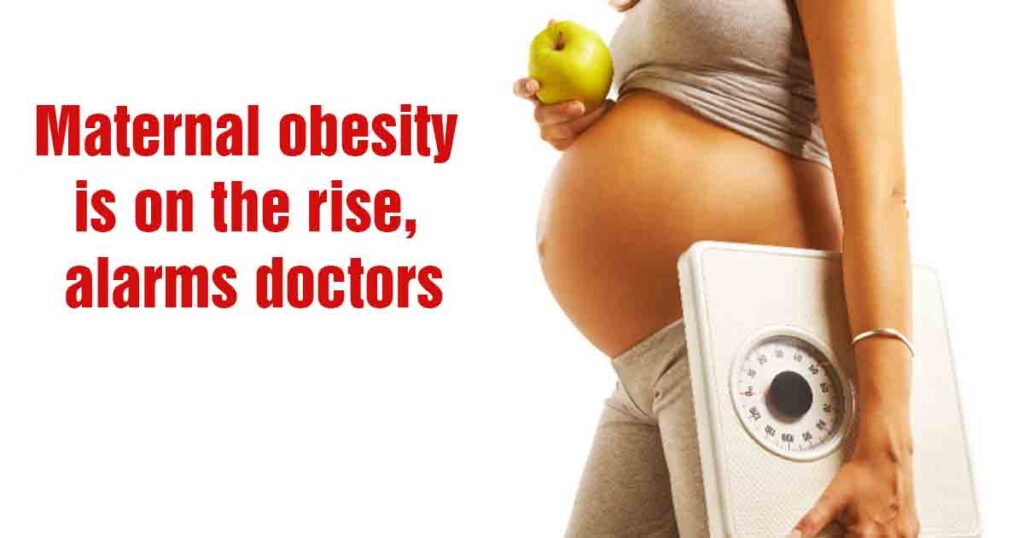Maternal obesity is on the rise, alarms doctors

Pune: The rising prevalence of maternal obesity poses a significant barrier to ideal obstetric practice. Maternal obesity can have detrimental consequences for both moms and babies. Pregnancy concerns for mothers include gestational diabetes and preeclampsia.
It is critical for women to increase their nutritional intake in order to guarantee that their developing child obtains adequate nutrients. Such counsel, however, is sometimes counterproductive, particularly in the case of obese women, for whom a healthy diet must be combined with avoiding the problems caused by excess weight.
Pregnancy puts the body under a lot of strain. As the new-born grows, it causes multiple physical and physiological stressors on the mother’s organ systems.
“When the mother’s body is already stressed due to obesity, the pressures of pregnancy can cause a number of complications. Women who are overweight or obese are more likely to have high blood pressure during pregnancy. In certain situations, high blood pressure can harm organ systems such as the liver or kidneys, a condition known as pre-eclampsia. Gestational diabetes is another prevalent problem for women. This refers to diabetes that develops during pregnancy. If left untreated, gestational diabetes can cause difficulties for both the newborn and the mother. Obese women are three times more likely than normal-weight women to acquire gestational diabetes, according to research. Throughout pregnancy, women might also have complications that can be fatal if they involve the lungs or heart. Obesity also increases the chance of miscarriage or stillbirth, as well as maternal heart disease and sleep apnoea. Obesity also raises the risks of C-section deliveries,” said Dr Sushruta Mokadam, consultant obstetrician at Motherhood Hospital, Kharadi, Pune
Dr Nitin Gupte, Gynaecologist, Apollo Spectra Pune Said, ”Obesity during pregnancy is considered a high-risk condition since it is linked to several problems. Obese people have a greater rate of infertility than normal-weight patients. They have a greater incidence of early miscarriage and foetal malformations, including neural tube problems, once they conceive. Obese women are more prone to suffer pregnancy-induced hypertension, gestational diabetes, thromboembolism, macrosomia, and spontaneous intrauterine demises in the later part of pregnancy, in addition to having preexisting diabetes mellitus and chronic hypertension. Obesity women also require more instrument or Cesarean section births than average-weight women.”
Dr Sushruta added, “Maternal obesity not only puts the mother in danger, but it also has a substantial influence on the newborn. First, maternal fat creates an unfavorable growing environment for the child. Children born to obese moms are at risk for preterm delivery and childhood illnesses such as asthma, obesity, cognitive impairments, and growth issues.The BMI, or body mass index, is one of the most basic methods of evaluating obesity. This figure represents the weight in proportion to height. Individuals with a BMI of 18.5 to 24.9 are regarded to have a healthy BMI. Overweight individuals have a BMI of 25 to 29.9, and obese people have a BMI of more than 30. Since risk increases with BMI, women with high BMI must take steps to improve their care and lose weight.”










